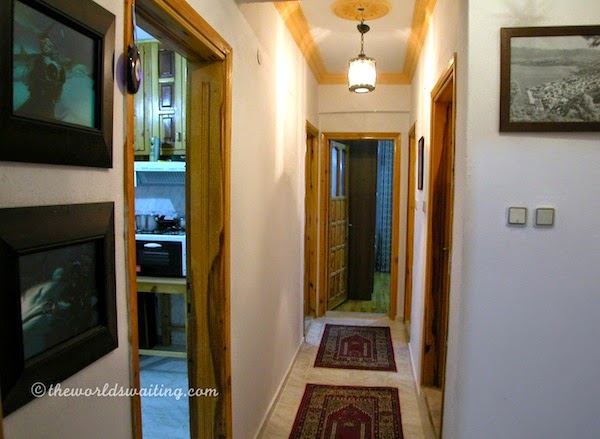
House sit and see the world for free
House sitting is a great way to extend your travel budget, enjoy accommodation standards you couldn’t normally afford, or get to know a new area by living like a local and exploring it for longer than a quick holiday. But how do you arrange a house sit and what is involved? Here is my introduction to house sitting.
What does house sitting involve?
House sitting is the exchange of services (looking after someone’s home and pets) for free accommodation. International variances in homes and lifestyles mean each opportunity is different. The most basic expectation is that house sitters keep the house in good condition until the owner returns. There can also be other duties such as pet care, gardening, pool maintenance and keeping an eye on the mail.
Why house sit?
Accommodation costs usually make up a large portion of travellers’ budgets. If you can stay somewhere for free it represents a significant saving, which is clearly of benefit to both holidaymakers and long-term travellers. Access to a kitchen allows you to self cater too, which offers further cost-reductions. House sitting also enables you to live like a local and really get to know an area. It is an ideal way to scope out a new neighbourhood or test-drive overseas retirement, before committing entirely.
Is house sitting for you?
In theory anyone can house sit; there are no qualifications required. It is not simply a free holiday though. When you house sit you take responsibility for someone’s home and pets. House sitting is generally straight forward, but you need to be prepared to solve any problems that arise in the owner’s absence, such as a sick pet, frozen water pipe or a blocked toilet. You also need to be prepared to complete tasks requested by the owner, such as pool maintenance or regularly walking dogs.

How to start Housesitting
House sitting has grown in popularity over recent years and there are several websites matching property owners with house sitters. The most popular worldwide sites are Trustedhousesitters.com, Mindmyhome.com and Housecarers.com. There are also several sites specialising in specific areas that can be found with a quick internet search of ‘house sitting’ and the name of the country or area you are interested in visiting.
How to get selected
Most sites allow you to build a profile and search house sitting opportunities for free but require you to have a membership in order to contact property owners. The fees vary but are quickly worth it once you have your first gig. Make sure your profile clearly explains your experience, skills (for example gardening or caring for horses) and preferences. Be honest though; there is no point saying you are happy to look after cats if you would hate every minute of it. It is also important to make sure you look like a trustworthy and reliable individual in your photo. Party photos will not do you any favours here.
When trusting their home to a stranger most people like to have a chat first and / or see references. The most relevant references are from previous house sits, but can be from previous landlords if you have not looked after someone’s home before. If you can get a few days’ experience looking after someone’s home or pets, even just for a weekend, that is better. A good way to organise some experience is to volunteer to help any friends or family that are going away soon.
Research the house sit
House sitting is all about the house. It is not about you. While you are permitted to stay in someone’s home, it is on the condition you look after their property. However, before you apply to house sit you need to make sure it would suit you.
Do you need to always be at the property, or is it acceptable that you overnight elsewhere occasionally during the sit? Does the property have an internet connection? If it is in a remote location is there a vehicle you can use? Are you allergic to any of the pets? It is important to ask these questions before committing to a house sit to avoid letting the owner down.

Successful house sitting
Got your house sit arranged? Great, just remember the number one rule in house sitting is ‘care for the property as if it were your own’. Respect the property, keep it clean and tidy, and make sure pets are well cared for.
Find out from the property owners what their preferences are before they leave. How many times do the dogs need walking? Is it ok to have overnight guests? Ensure you also have contact numbers for the veterinarian (if there are pets), and preferred local trades people, should you encounter any problems.
A few things to ask about before the owners leave the property:
- Make sure you have keys and if there is a spare key, where is it?
- Are there any quirks with household appliances?
- If there are pets, do they have any special care / health care requirements? What are the contact details for the veterinarian?
- If a plumber or electrician is needed, is there a preference of who, should be contacted, and what are their contact details?
- What maintenance does the garden need?
- If there is a pool, does it need any maintenance?
- Should you check the mail?
- What day is bin day?
If you have done some house sitting, what further tips would you add? Please share them in the comments below.




